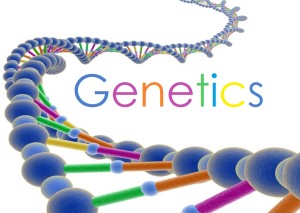The Hope Museum will promote understanding and insight of the role of heredity and genetic in disease risk and for prevention of disease though educational exhibits and by offering genetic testing and counseling. One focus will be the emerging science of nutritional genomics for maintaining health.
Women with certain alleles (genetic variants) in the BRCA1 and BRCA2 genes may be at very high risk of breast cancer. The normal forms of these two genes help prevent cancer, but some families carry allelic forms of these two genes which are crippled. These high risk forms are factors not only for breast cancer, but also for several other cancers, including ovarian, pancreatic and prostate cancer among men.
The high risk BRCA2 allele increases the risk of breast cancer in men by as much as by 65 times; in some populations high risk BRCA2 causes 40 percent of all breast cancer occurring men, and greatly raises the risk of prostate cancer before the age of fifty. Other heritable genes increase the risk for ovarian and other cancers. About two to three percent of the population carries a high risk BRCA gene. All women and men should have access to genetic testing for these and other diseases. This knowledge allows women with these genetic variants to plan their childbearing, screening for this disease, and make informed decisions, based on science and a clear understanding, on preventive procedures they may consider.
The museum will help visitors understand how genetic testing can be used now, not to predict gloom and destruction, but rather how to use this data to take simple and easy steps to avoid the diseases one is most susceptible to, and to take the best advantage of screening and preventive procedures. It is important for women to understand that the risk from these altered alleles increases risk, but is not an absolute determinant. DNA does not spell destiny, nor should is spell DeNiAl. These alleles should be thought of as risk multipliers. Thus, alcohol, smoking and other risk factors increase the risk of cancer in BRCA carriers multiply their risk as compared to other persons; meanwhile breast feeding and a healthful diet decrease cancer risk in these persons.
Another focus will be nutritional genomics for disease prevention. Many people aware that broccoli may decrease this risk of cancer, and perhaps lower the risk of heart disease as well. What is less well appreciated is that, depending on an individual’s heredity and life style, broccoli may or may not help, but other foods may. Consuming more than two alcoholic beverages a day promotes cancer; however, depending of genetics, the risk may be higher or lower for different individuals, depending on allelic differences in enzymes that affect how the person’s body metabolizes alcohol. A person may by at dozens of times higher risk from alcohol if they have a certain form of an enzyme.
Visitors, can have pre-counseling and genetic testing done at the museum, and later have a private consultation with a certified genetic counselor, at the museum, or at home by phone or video conference. We will to develop associations with specialists and other physicians around the U.S. and internationally. The museum will offer to send the visitors results to the patrons personal physicians with clear instructions on how to present the information, along with literature explaining what the test means and doesn’t mean, and reasonable advice on follow-up. It will also offer locations of genetic counselors in the patron’s home area.
Check out the BRCA Risk Evaluation Tool from Stanford University.
Sources
- CYP2E1 and risk of chemically mediated cancers. Trafalis DT, Panteli ES, Grivas A, Tsigris C, Karamanakos PN. Expert Opin Drug Metab Toxicol. 2010 Mar;6(3):307-19. PMID:20073996
- Cancers associated with BRCA1 and BRCA2 mutations other than breast and ovarian. Mersch J, Jackson MA, Park Met al. Cancer. 2015 Jan 15;121(2):269-75. PMID: 25224030
- Study of a single BRCA2 mutation with high carrier frequency in a small population. Thorlacius S, Sigurdsson S, Bjarnadottir H, et al. Am J Hum Genet. 1997 May;60(5):1079-84. PMID:9150155
- Modifiers of cancer risk in BRCA1 and BRCA2 mutation carriers: systematic review and meta-analysis. Friebel TM, Domchek SM, Rebbeck TR. J Natl Cancer Inst. 2014 Jun;106(6):dju091. PMID:24824314
- Modification by N-acetyltransferase 1 genotype on the association between dietary heterocyclic amines and colon cancer in a multiethnic study. Butler LM, Millikan RC, Sinha R, et al. Mutat Res. 2008 Feb 1;638(1-2):162-74. PMID:18022202
- Effect of NAT1 and NAT2 genetic polymorphisms on colorectal cancer risk associated with exposure to tobacco smoke and meat consumption. Lilla C, Verla-Tebit E, Risch A, et al. Cancer Epidemiol Biomarkers Prev. 2006 Jan;15(1):99-107. PMID:16434594
- ADH1B Arg47His polymorphism is associated with esophageal cancer risk in high-incidence Asian population: evidence from a meta-analysis. Zhang G, Mai R, Huang B. PLoS One. 2010 Oct 27;5(10):e13679. PMID:21048924

